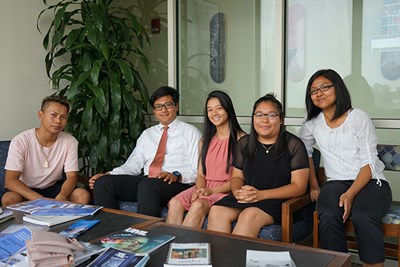Phitsamay Uy Applauded as an ‘Incredible Teacher, Mentor and Advocate’
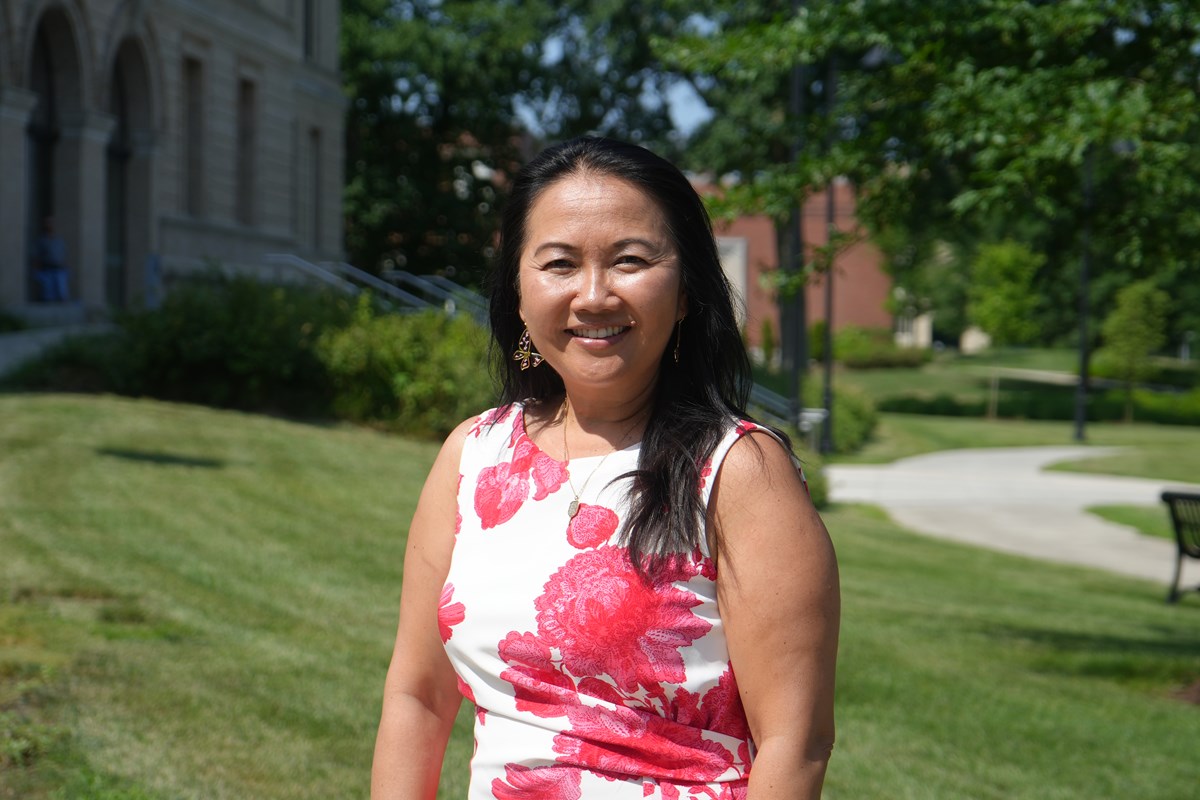 Image by Brooke Coupal
Image by Brooke Coupal
07/30/2024
By Brooke Coupal
Phitsamay Uy’s office in Coburn Hall on South Campus resembles a small grocery store.
From granola bars to apple juice, the associate professor in the School of Education keeps food and drinks readily available for anyone who comes by. When she teaches, she brings snacks to the classroom.
As a Lao refugee, Uy understands what it’s like to go hungry and how a growling stomach can impede a student’s focus. She recognizes that students come from varying socioeconomic and cultural backgrounds. By asking questions from “Have you eaten?” to “How do your lived experiences shape you?”, Uy seeks to know her students on a deeper level.
“Phitsamay goes above and beyond to get to know you not only as a student, but as a person,” says Cassie McCallum ’13, ’18, a student in the leadership in education Ph.D. program. “She genuinely cares about every aspect of your life and will show up for you in whatever you need.”
McCallum is one of the many who nominated Uy for the Manning Prize for Excellence in Teaching, an endowed teaching award established in 2016 by Robert ’84, ’11 (H) and Donna Manning ’85, ’91, ’11 (H). The prize is awarded annually to one professor at each of the five UMass campuses, and this year, Uy received the honor for UMass Lowell, along with a $10,000 stipend.
“To be honored for all the hard work that I’ve done, it’s so affirming,” says Uy, the co-director of the Center for Asian American Studies and the former graduate coordinator for the Ed.D. programs. “I don’t do it for the award; I do it for the students. But it’s so nice to be recognized.”
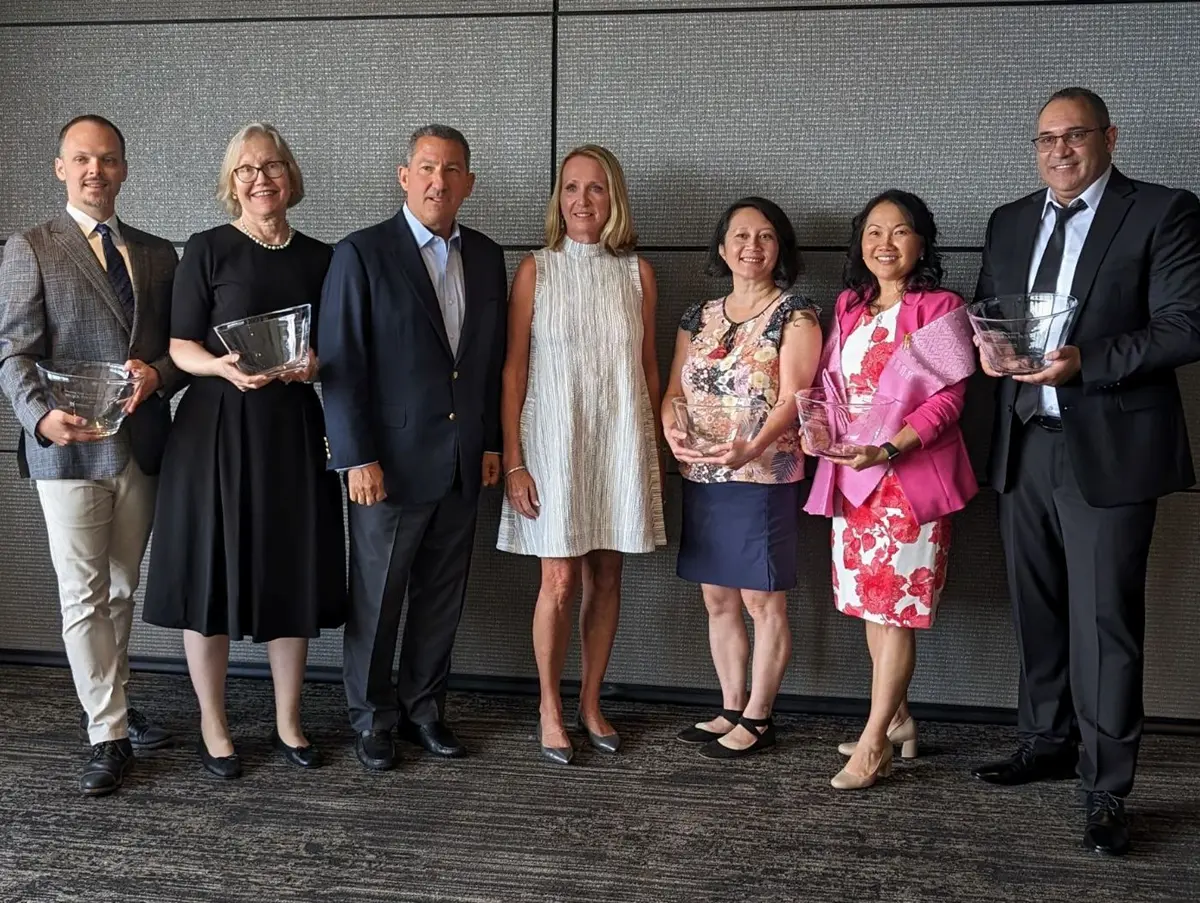 Image by Courtesy
Image by Courtesy
‘Accidental Academic’
Uy was born in Laos in 1973, at the end of the U.S. Central Intelligence Agency’s secret war against the communist group Pathet Lao. When she was 4, Uy and her family fled to neighboring Thailand, where they spent two years in a refugee camp before escaping to the United States and settling in Manchester, Connecticut.
Going through the American K-12 system, Uy learned nothing about Lao history. That changed during her junior year at Boston College when a friend encouraged her to take an elective course in Asian American history. She learned about the secret war and the roughly 580,000 bombing raids on her home country that happened over nine years. The class had Uy questioning, “What else did I not learn about my country?”
The elective course propelled Uy, who earned a bachelor’s degree in human resource management, into education.
“I wanted to help young kids learn about their history, so I chose to become a teacher,” says Uy, who went on to get her master’s degree in curriculum and instruction at Boston College.
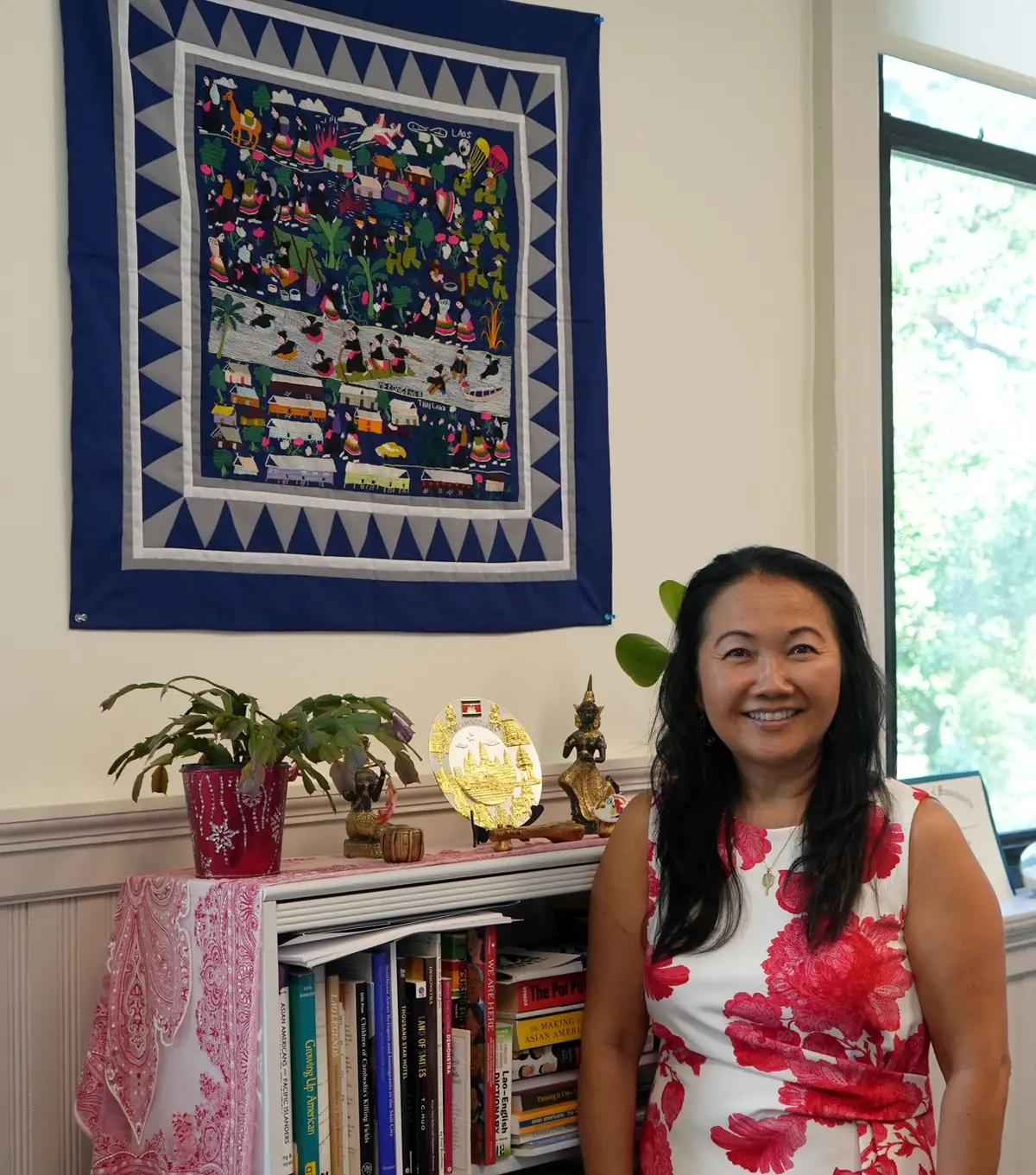 Image by Brooke Coupal
Image by Brooke Coupal
Uy taught at an elementary school in Long Beach, California, where she discovered an alarmingly high dropout rate for Southeast Asian students. At the recommendation of her roommate at the time, Uy decided to pursue two additional degrees at Harvard University to research the influence that families, friends and teachers have on academic achievement for Lao and Khmer high school students. She completed her master’s degree in administration, planning and social policy, and then became the first Laotian American refugee to receive a Doctor of Education from Harvard.
Through research, Uy found that Lao and Khmer students often fell behind in school because they did not have the necessary resources or social capital to be successful.
“I needed to educate more people that this was happening, and lucky for me, UMass Lowell had an opening,” says Uy, who joined the university in 2011 as an assistant professor in the School of Education. She saw this as a great opportunity, as Lowell has the second-largest Cambodian American population in the U.S., behind Long Beach.
“I consider myself an accidental academic,” Uy says. “I never knew that I was going to become a professor.”
Dedication to Equity
Over 13 years at UMass Lowell, Uy’s research endeavors, which focus on Southeast Asian American students’ educational experiences and family and community engagement, have resulted in nearly $8 million worth of grants and contracts.
Uy uses her research findings to advocate for programs that help disadvantaged populations. Through her advocacy, she helped secure a $1.5 million grant from the U.S. Department of Education that officially designated UMass Lowell as an Asian American Native American Pacific Islander Serving-Institution (AANAPISI). The grant enabled the creation of the Asian American Center for Excellence & Engagement (AACEE), which offers a wide range of resources, including financial literacy sessions and study groups, to address the needs of the growing Asian American population at the university. AACEE Program Director Cherry Lim, who also nominated Uy for the Manning Prize, draws inspiration from her.
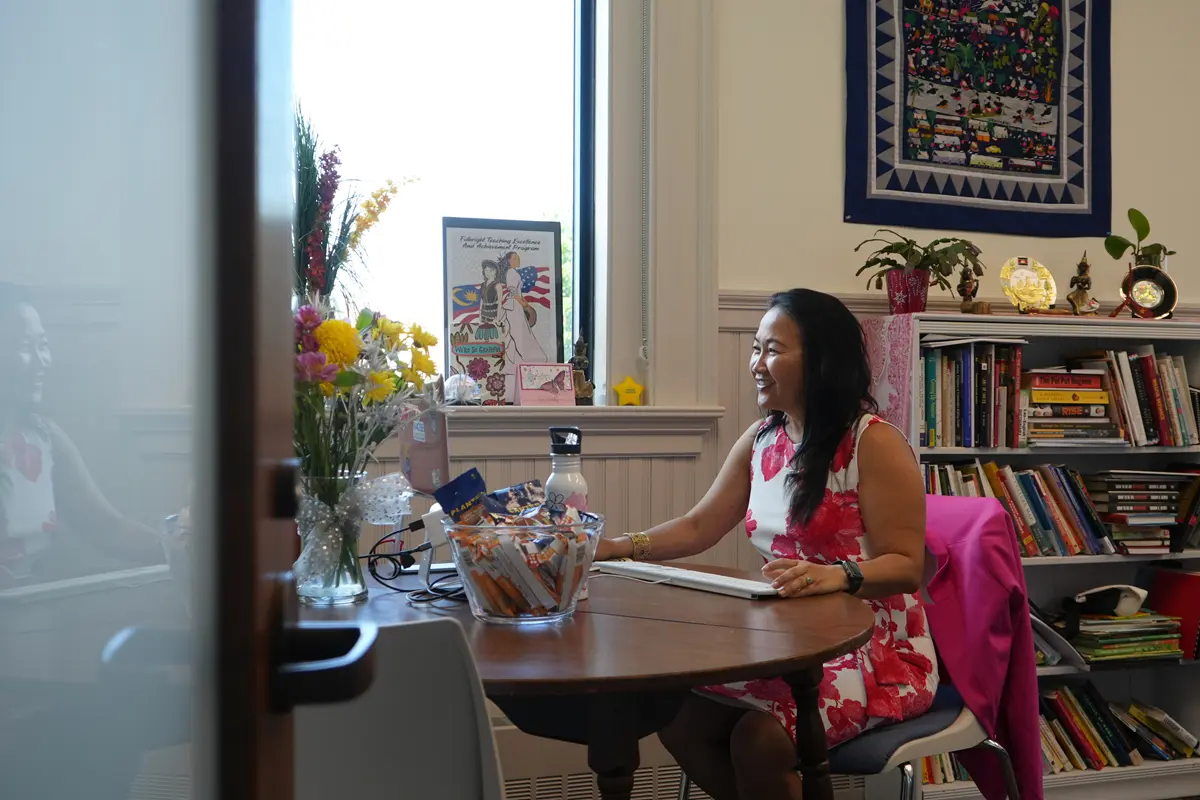 Image by Brooke Coupal
Image by Brooke Coupal
“As a fellow Southeast Asian American woman, she has modeled how to be a scholar, an activist and a research practitioner in a way that supports her communities,” Lim wrote of Uy in a nomination letter. “I have my job today because of her determination to serve Southeast Asian American students in Lowell and am proud to follow in her footsteps.”
Lim is also a student in the leadership in education Ph.D. program, and last academic year, she took Uy’s course Sociocultural Contexts of Educational Communities.
“This course has been one of the most illuminating academic experiences ever,” wrote Lim, who explored her multiethnic identity as a Cambodian American and Chinese American in Uy’s course.
Uy works with her students to help them understand their social identities and how this impacts the way they learn and make sense of the world. She validates students’ identities by teaching about scholars who are representative of her students. She also creates a collaborative learning environment through exercises that include students researching and presenting to the class about different theorists of color.
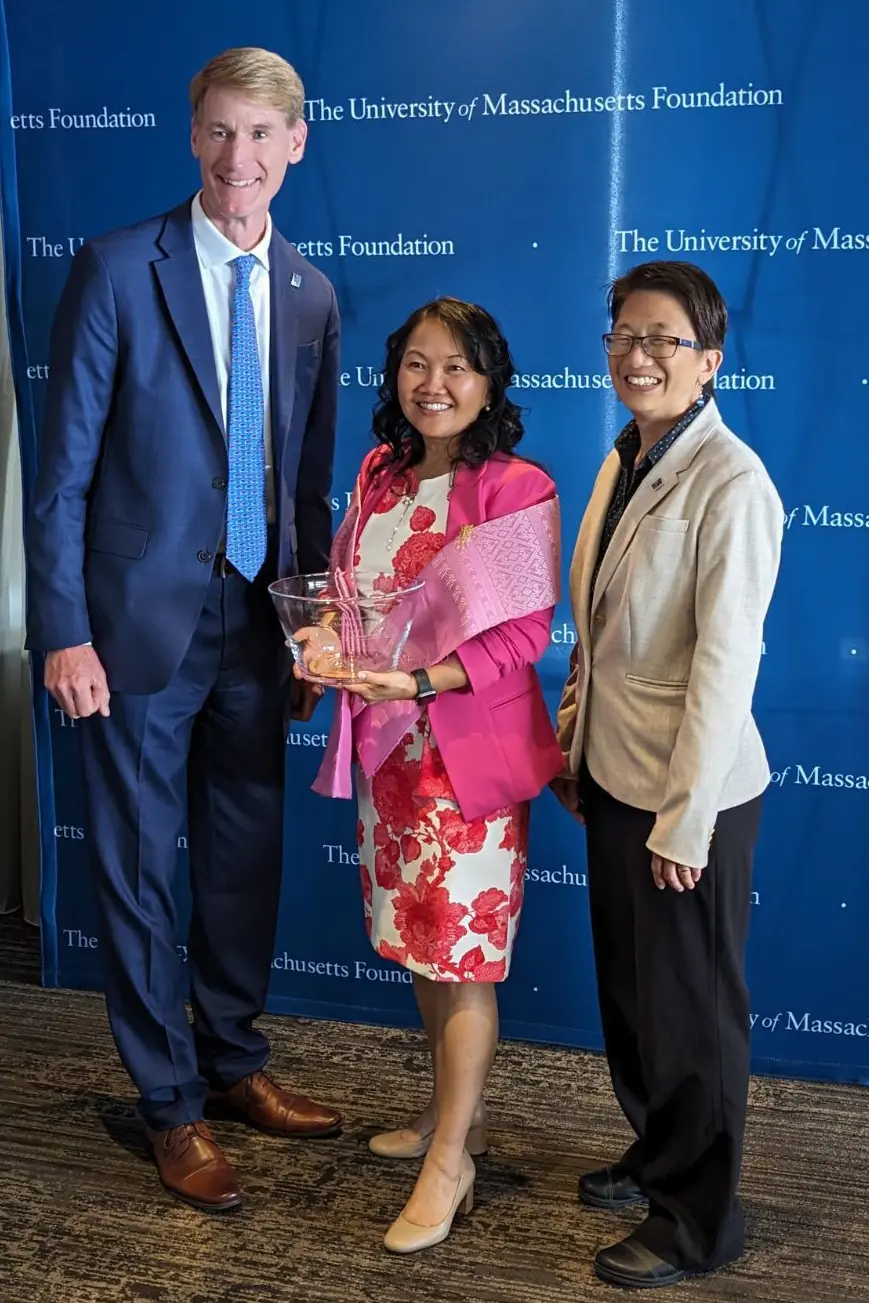 Image by Courtesy
Image by Courtesy
Uy, who became the first tenured Lao American faculty member in a School of education in the U.S. in 2017, does everything with equity in mind, from helping revamp programs in the School of Education to working with university staff members on social identity so they can better serve students. She continues to conduct research and advocate for programs that will help the UMass Lowell community and beyond.
Sue Kim, the incoming dean for the College of Fine Arts, Humanities & Social Sciences, sees Uy as a “tireless champion for underrepresented, underresourced students.”
“Dr. Uy has been an incredible teacher, mentor and advocate for students at UMass Lowell, in the region and nationally,” says Kim, who co-directs the Center for Asian American Studies with Uy. “The incredible honor of the Manning Prize recognizes the decades of dedication she has put into furthering educational excellence for all.”
Accepting the Manning Prize at the UMass Club in Boston, Uy proudly let her social identity shine as she tearfully said in Lao, “Khop jai lai lai.”
And then she translated: “I will keep this moment in my heart for a long time.”



